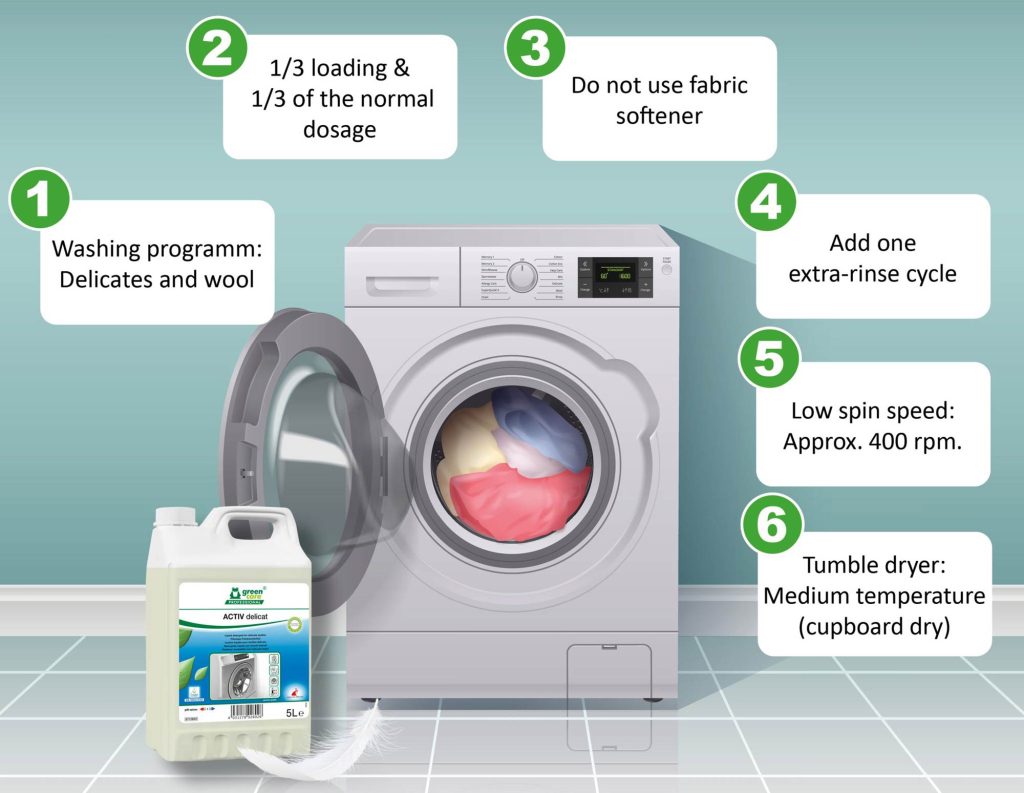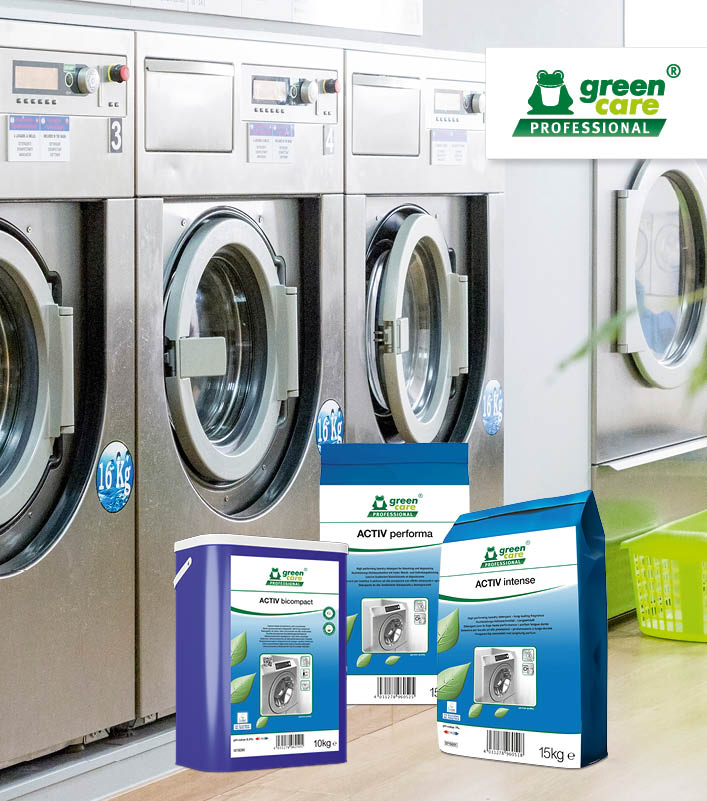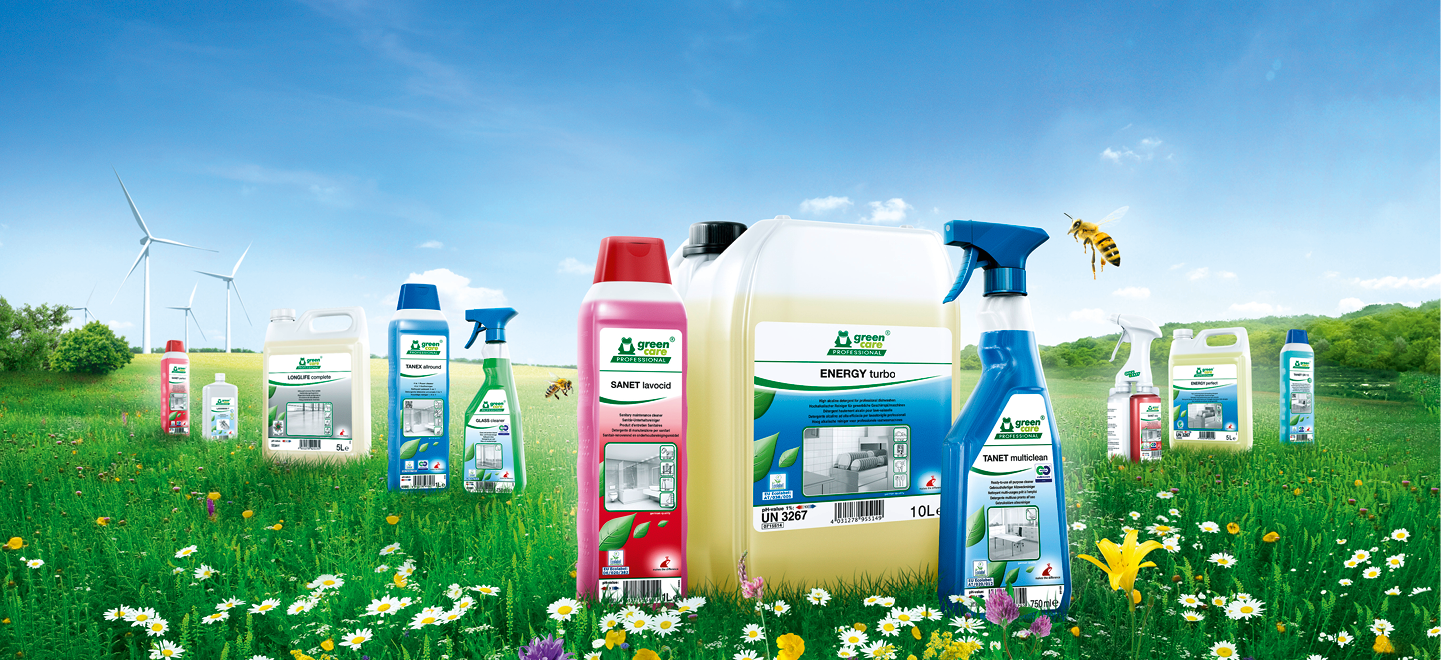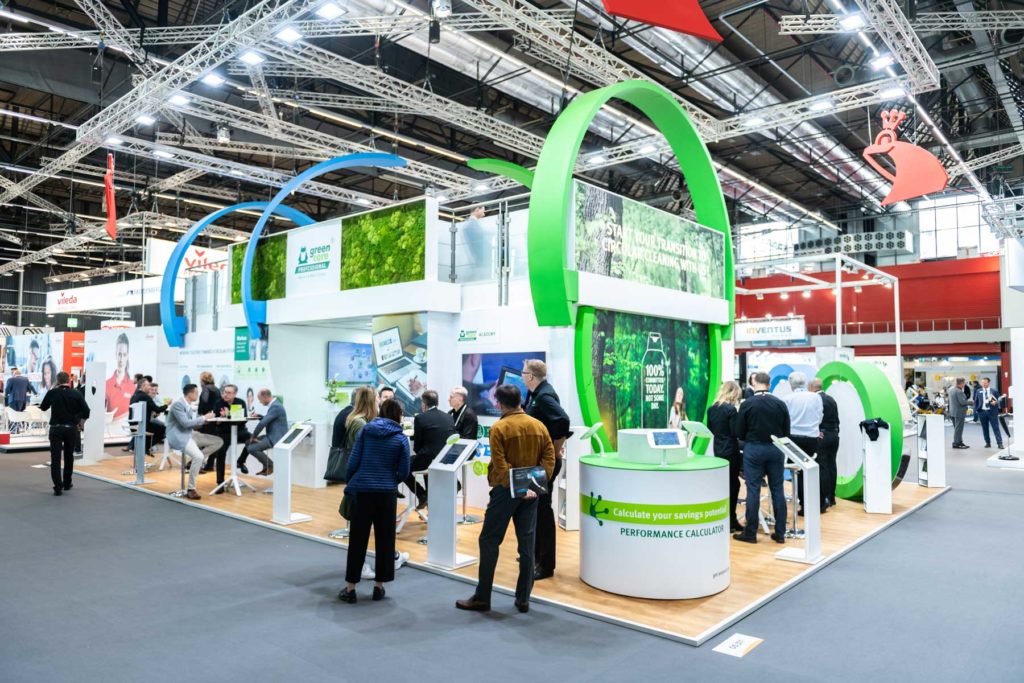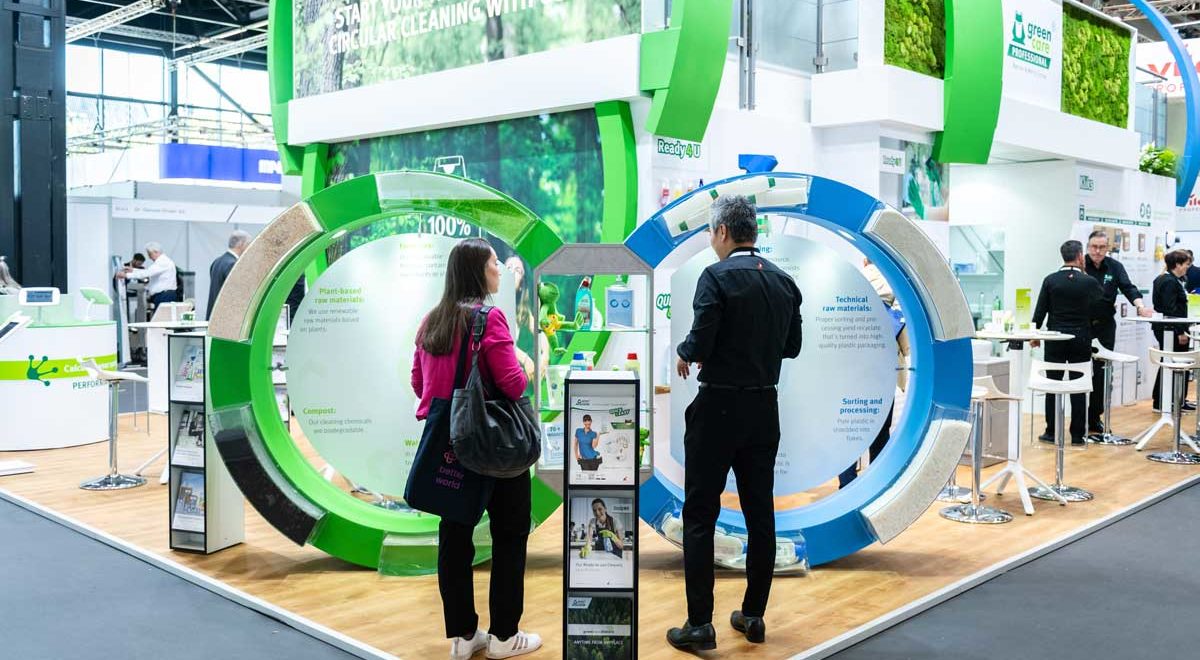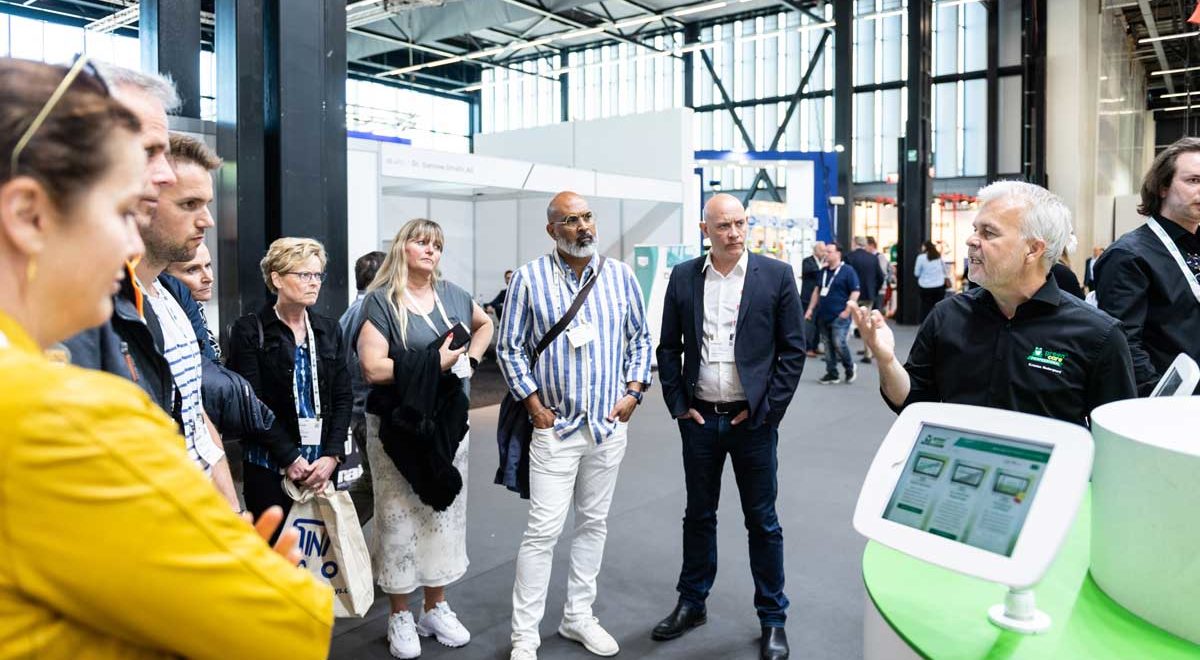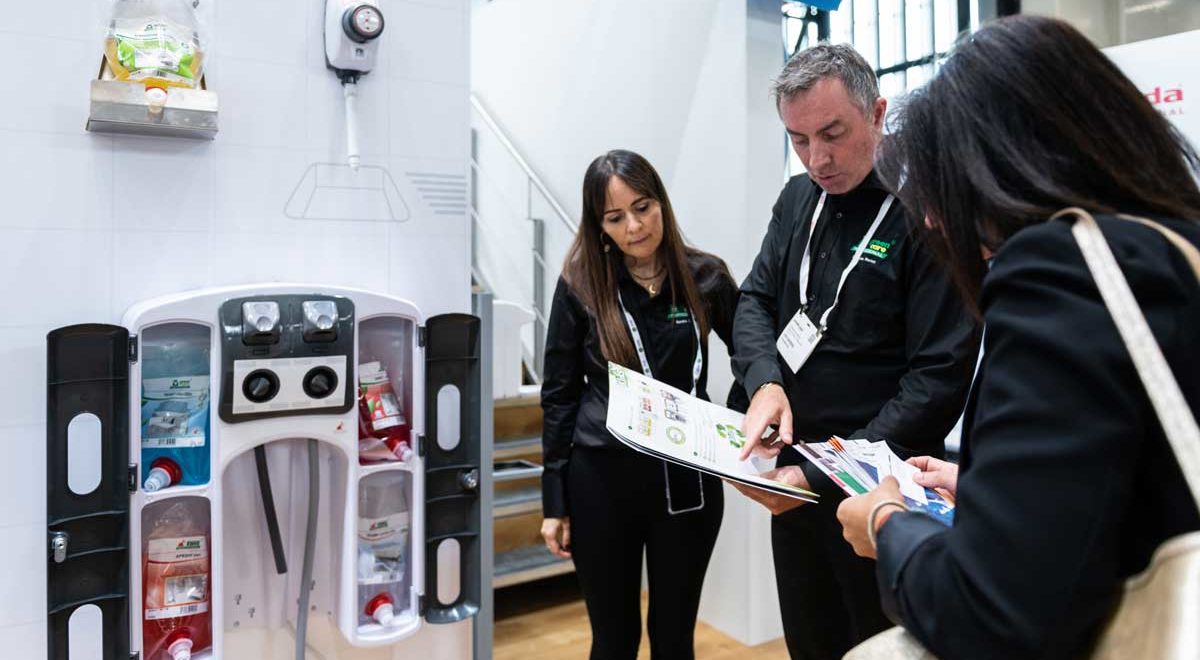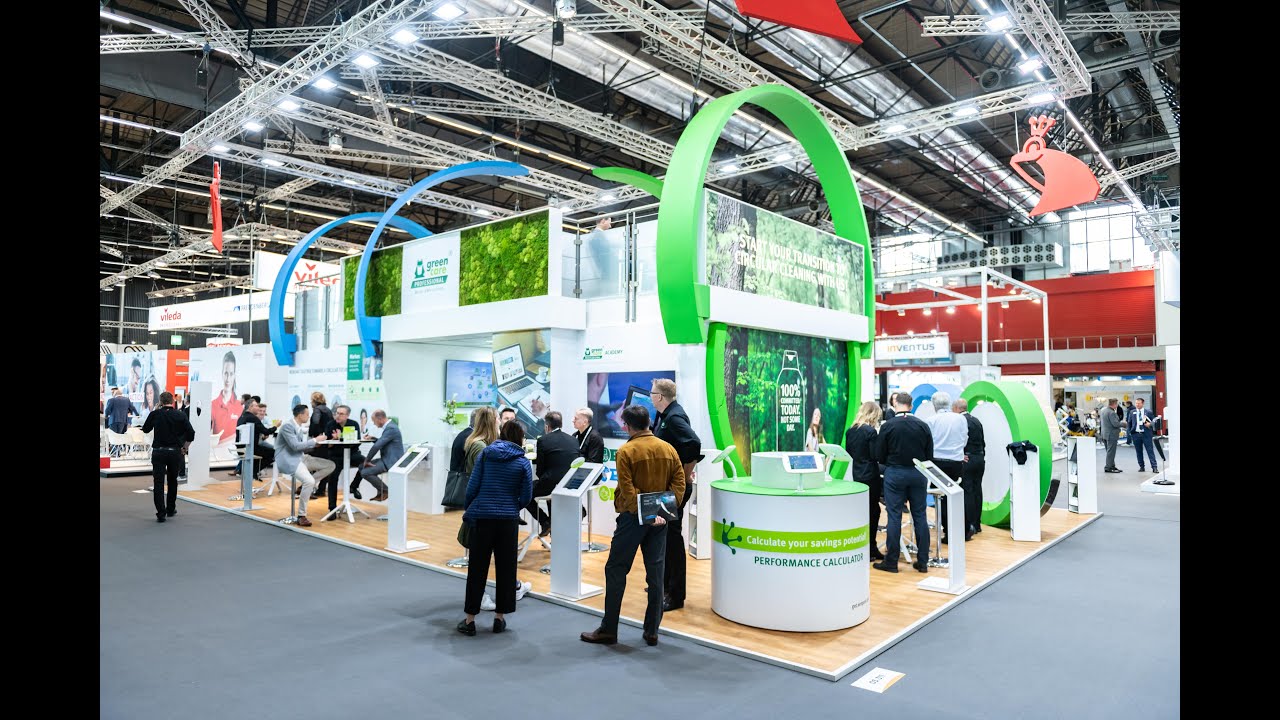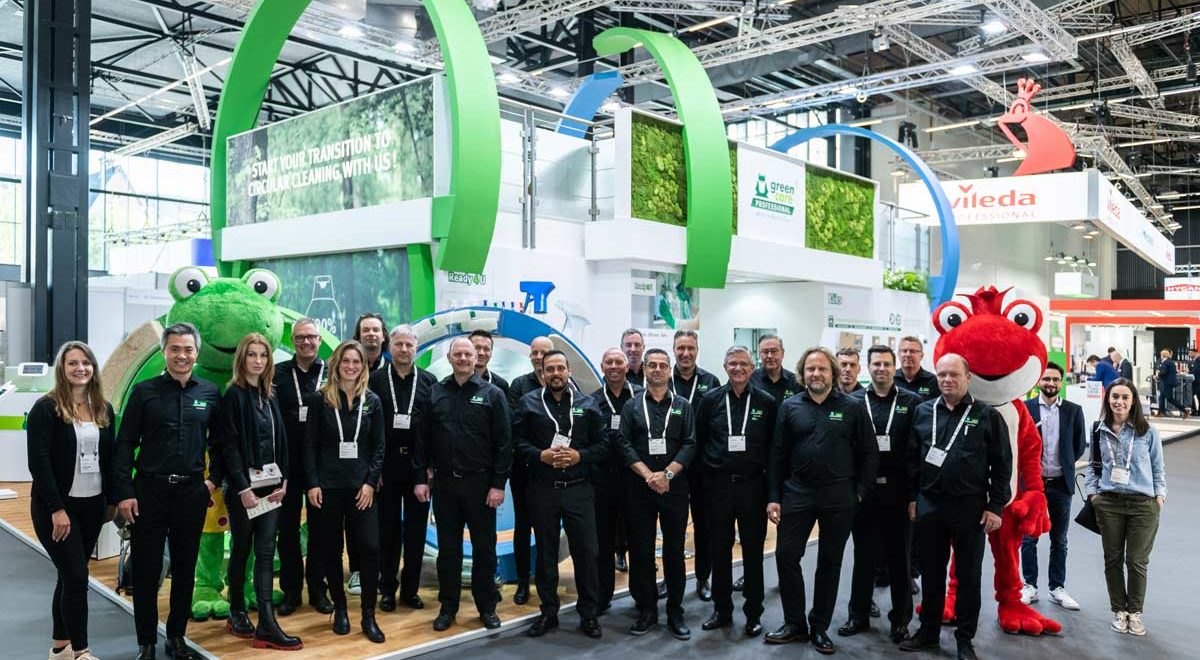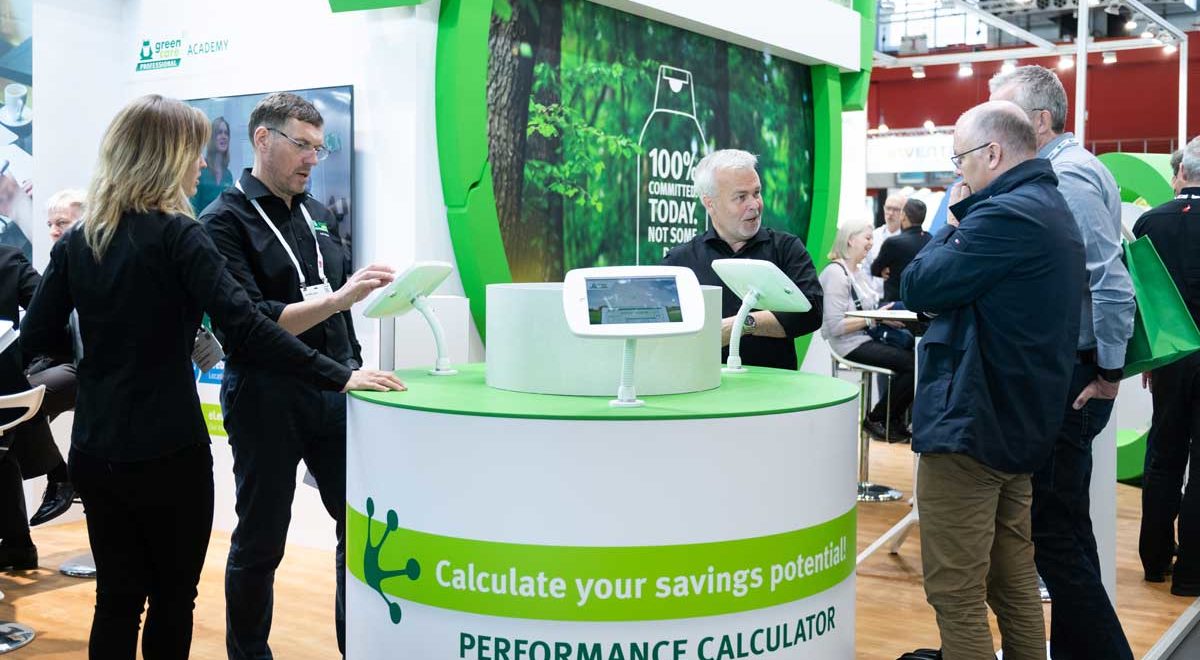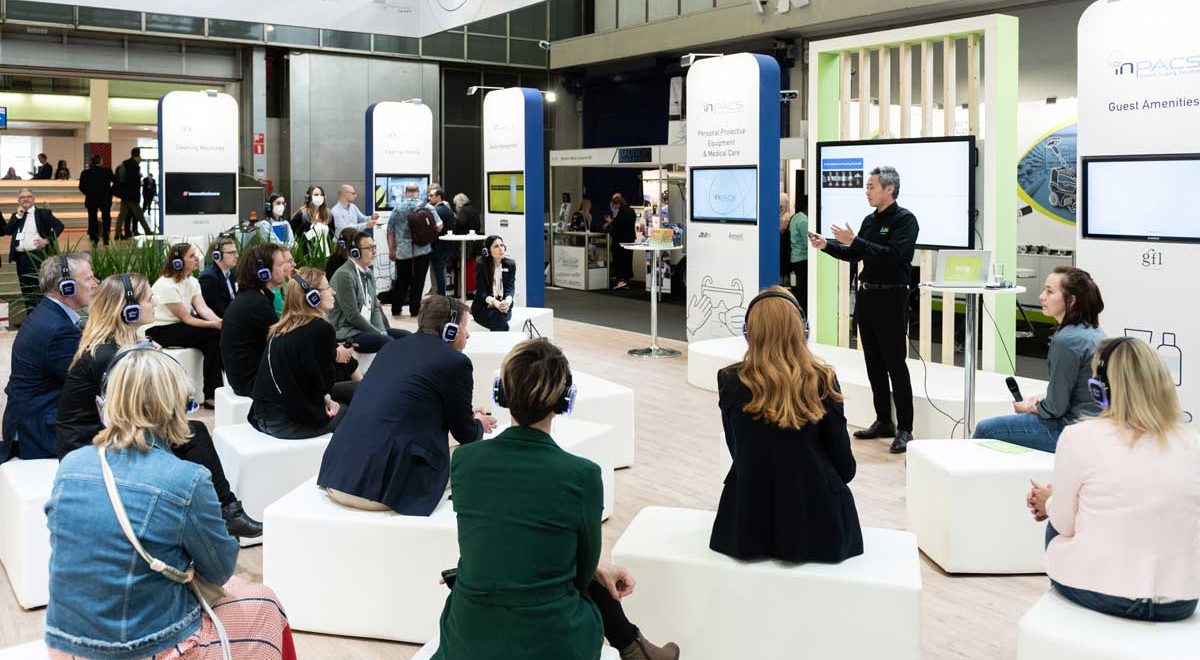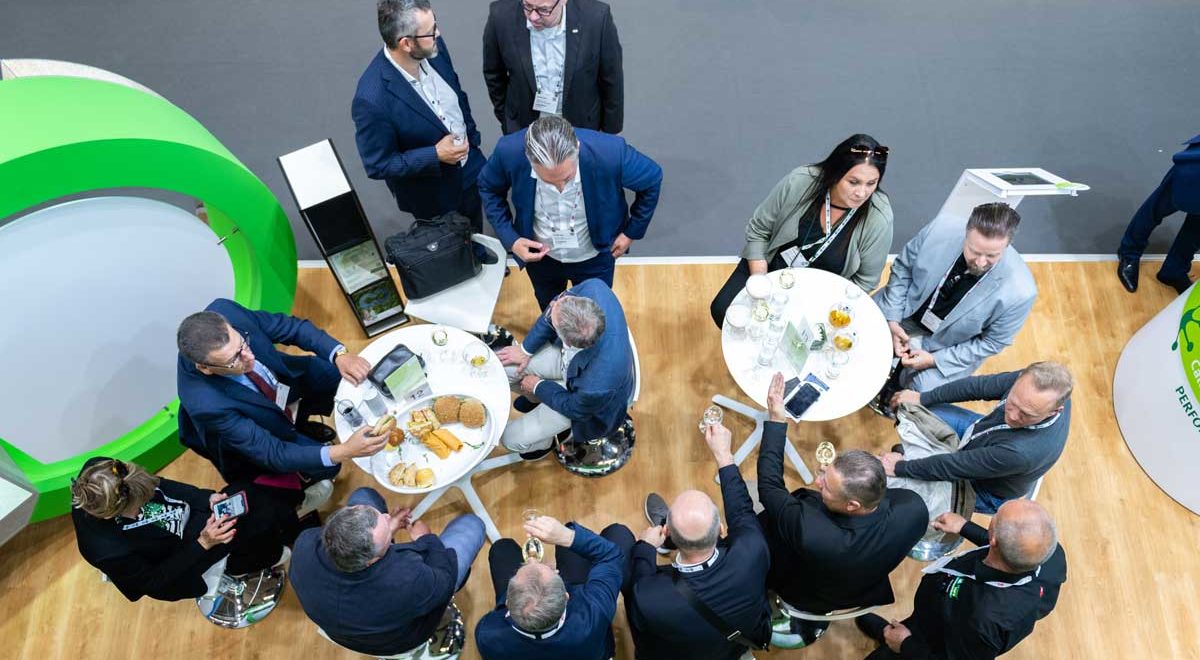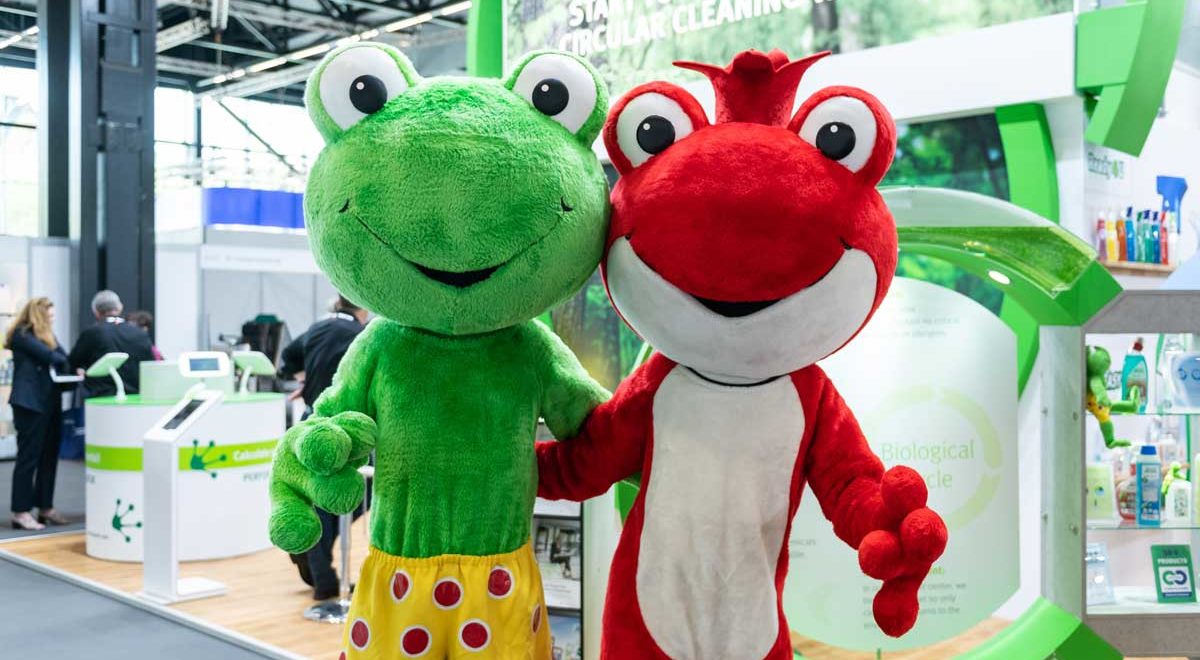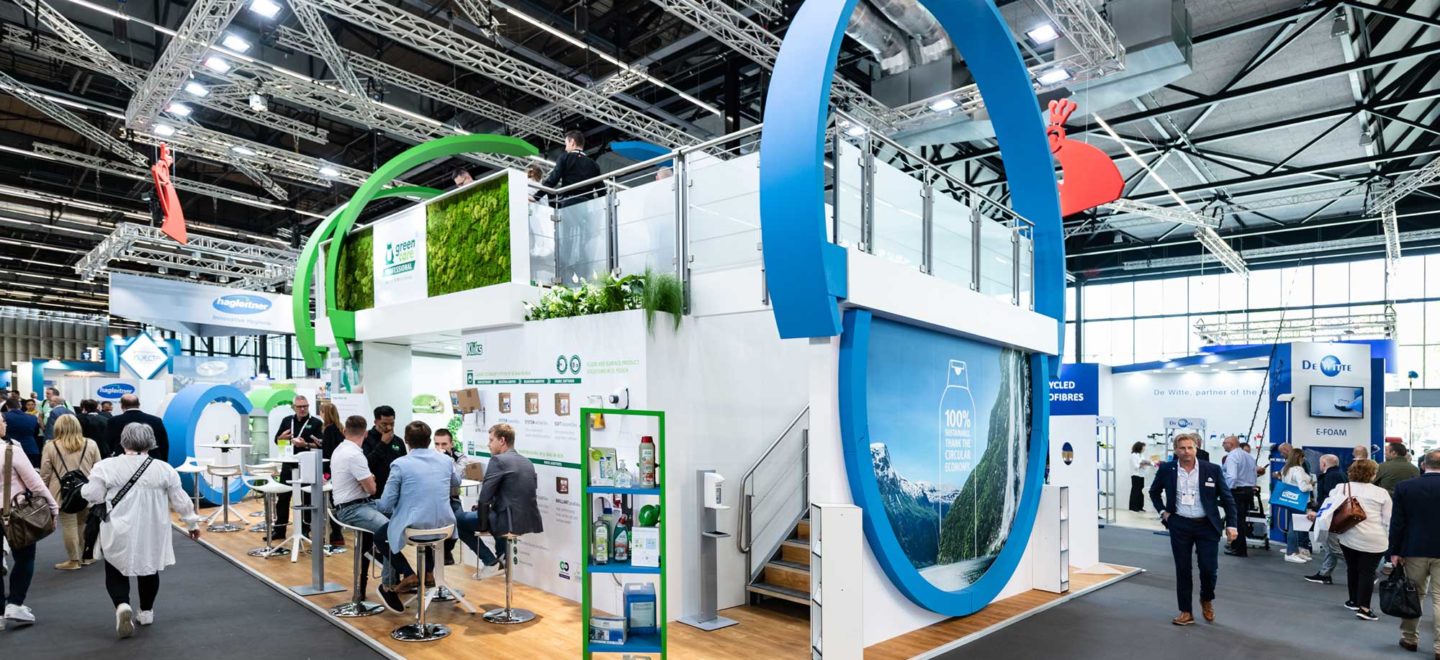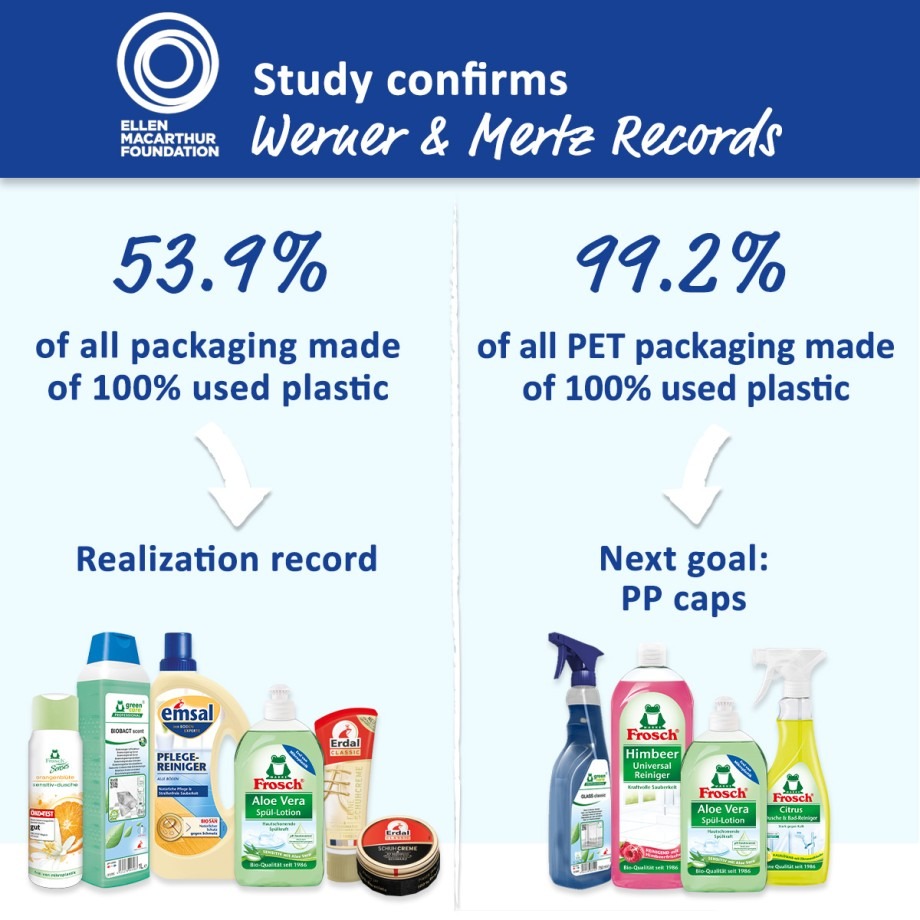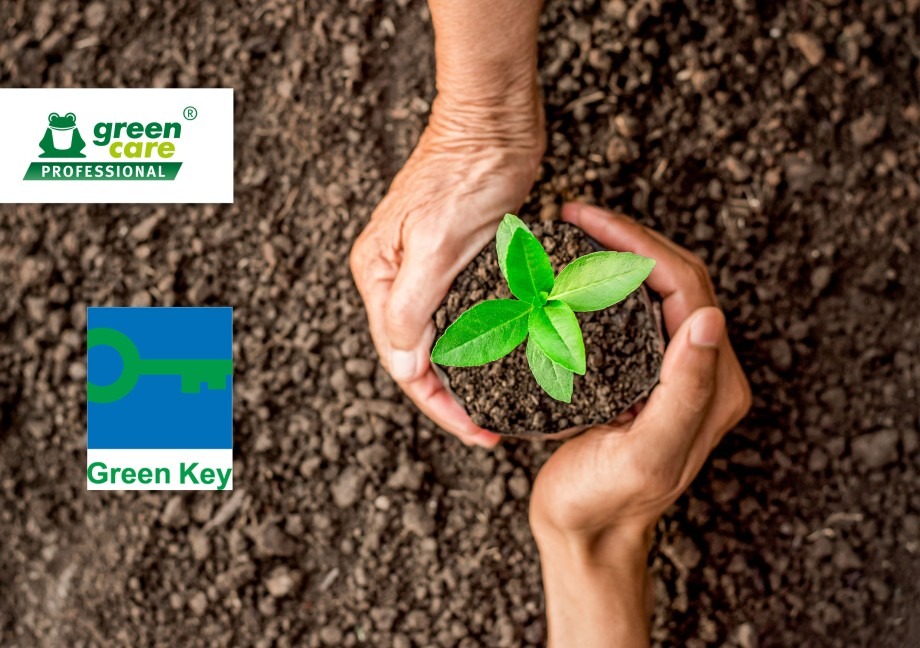Gym hygiene: A clean start to the new year
Since the Corona pandemic, our health awareness has increased. We pay more attention to our diet and we do more sport. In Germany alone, the fitness industry, with its approximately 9 million members, is one of the forms of exercise with the largest number of members. For studio operators, this is good news. But comprehensive training support is not enough. Compliance with hygiene standards is the guarantee that gym members feel good. We show here which aspects can be particularly taken into account per area.
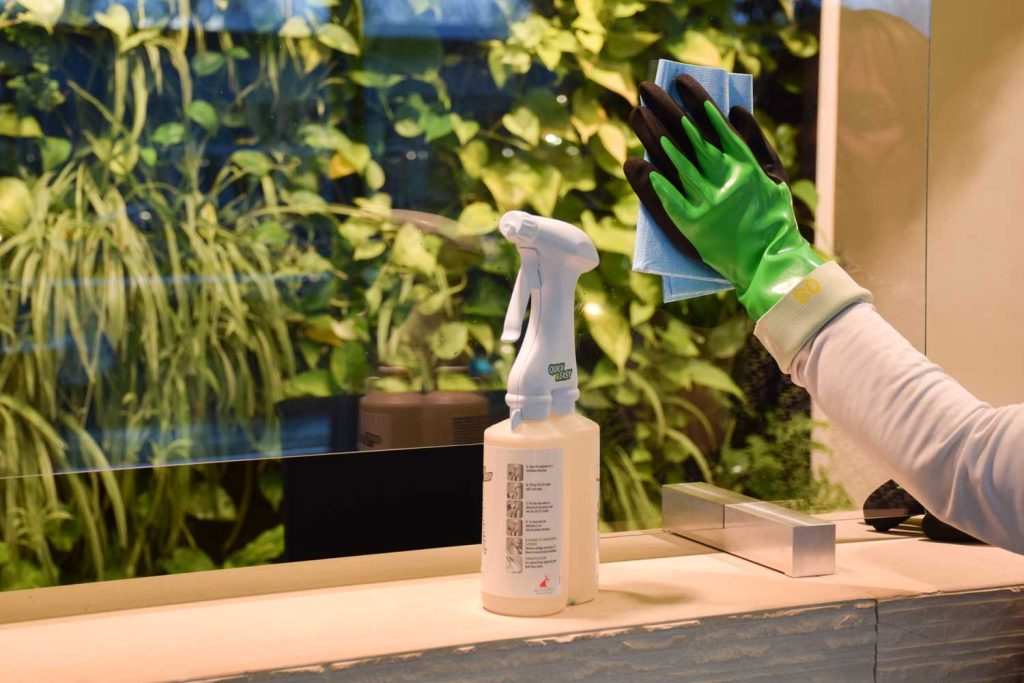
First impression counts
The entrance area is the business card of the gym. It is important to leave a lasting and positive first impression. Since Corona, every visitor should have the opportunity to disinfect his hands here. Attention should be taken to ensure that the floor covering is insensitive to alcohol splashes or protected by means of a protection mat. The meanwhile widely used Plexiglas panes require special care, as not every cleaner is suitable for this material. Therefore, a cleaner with the appropriate material compatibility should be selected. For the counter area, the use of a ready-to-use cleaner is recommended. Direct application without intermediate steps leads to optimal results in just a few seconds – saving time and money. This way, cleaning can also be done during opening hours to maintain the highest hygiene standards. Some systems, such as Quick and Easy from Tana-Chemie, allow foam application of the cleaners. The resulting reduced aerosol formation contributes to maintaining good air quality and thus also to a feel-good atmosphere for the gym members.
Safe odor control for humans and the environment
Pleasant smells can have a positive influence on the environment. Especially in highly frequented areas of gym, people sweat a lot. Sweat odor accumulates and becomes a challenge for odor control. Regular airing is important for air exchange, but cannot eliminate all odors. Air fresheners use a lot of perfume to mask bad odors, they only work for a short time and quickly reach their limits. Therefore, the use of a biotechnological cleaner is recommended as they eliminate bad odors in the long term. Natural microorganisms penetrate deep into the dirt layers and effectively decompose malodorous, organic residues. After application, they continue to work thanks to microbial dirt dissolvers and prevent new organic dirt formation. They are safe to use for humans and the environment and have a high material compatibility.
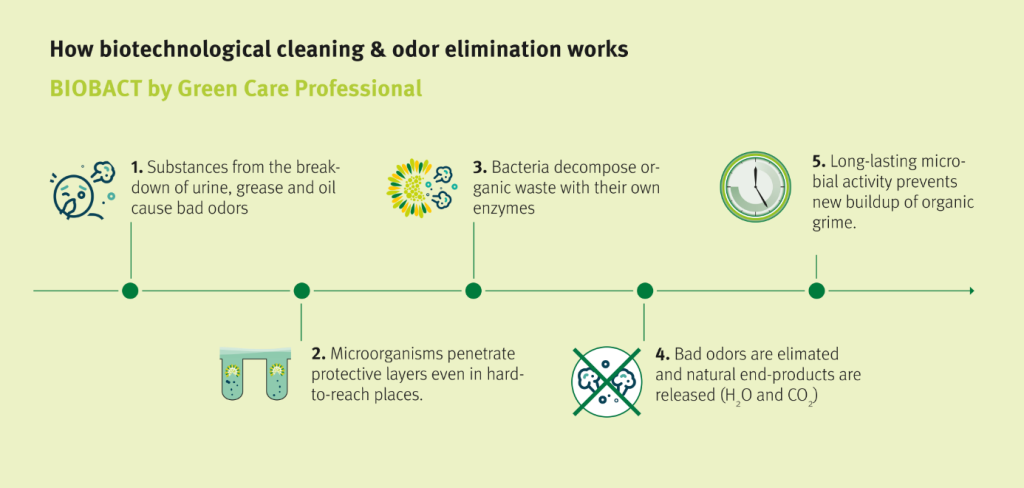
Sustainably clean and hygienic changing rooms and sanitary facilities
According to a study by the German Employers’ Association of Fitness and Health Facilities (DSSV), more than half of the gym members in 2021 stated that hygiene standards were relevant when choosing a gym. This is especially true for the changing room and sanitary facilities with their different materials and barefoot areas. The often insufficient ventilation, heat and high humidity provide excellent breeding grounds for germs.
It is therefore a stated goal to remove visible contamination and to reduce the (non-visible) number of germs to a harmless level. This state is called sanitation. Sanitation is achieved by acids typically used in cleaning, such as lactic acid, citric acid, amidosulfonic acid or methanesulfonic acid. The acidity ensures a sufficient reduction in germs, which is necessary for the required hygiene level in maintenance cleaning. This is supported by special surfactant combinations that are used in typical sanitary maintenance cleaners. Volatile acids such as acetic or hydrochloric acid are not recommended, as these can damage many materials.
Which detergents are best suited for this area depends, on the one hand, on the type of soiling. These include organic soiling such as soap residues, dander and lime soap. In addition, there is a variety of mineral soiling such as lime, rust, urine scale or even brownstone. Secondly, the type of surface plays an important role. Therefore, during sanitary maintenance cleaning, it is important that the method used, with the acids and other ingredients it contains and the associated mechanics, is suitable for the surface to be cleaned. Application concentration and duration must be chosen correctly according to the soiling. This prevents damage to the existing surfaces and increases value retention. This in turn maintains the pleasant appearance of a modern sanitary room.
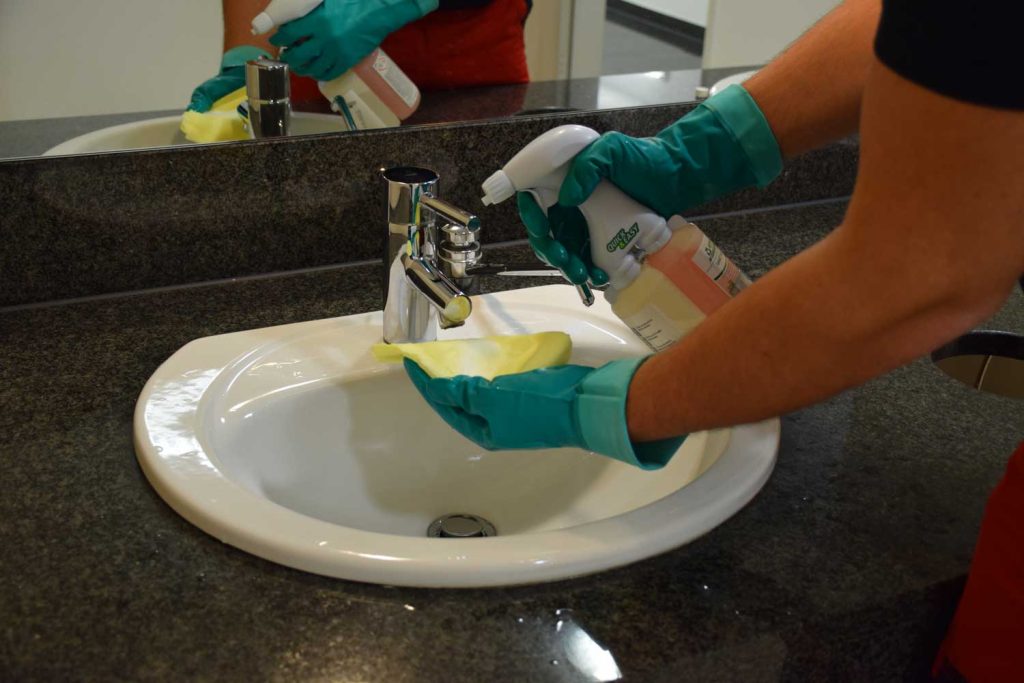
Most maintenance cleaners are acidic and therefore only suitable for acid-resistant surfaces such as intact chromium-plated metal and plastic elements, stainless steel, some plastics, ceramic products, glass, porcelain, acid-resistant natural and artificial stone, etc. Typically only acids that are not too aggressive are used for maintenance cleaning. This protects surfaces but also the users. To achieve effectiveness, Sanet daily is a good example. The foam adheres to the surface and effectively counteracts lime soap and supports the cleaning performance.
For the cleaning of acid-sensitives surfaces such as ones made of polyacrylic or lime-bound materials, use acid-free sanitary maintenance cleaners. These are very similar to a classic all-purpose cleaner and the application concentration is around the neutral point (pH 7). Regular maintenance cleaning of such materials is important to avoid the formation of limescale deposits, wihich cannot be removed by acid-free products. Limescale deposits can nevertheless be effectively prevented in combination with e.g. scratch-free pads.
Customized disinfection protects athletes, sports equipment and the environment
Sports equipment and items are used by many people, leaving behind sweat, endogenous germs and dirt. But there is good news here: Detergents containing surfactants effectively reduce the germ load. Especially in the course of Covid 19 virus prevention, the use of such cleaners is an alternative, because the virus belongs to the enveloped viruses. The viral envelope consists of fat and is torn apart by the use of surfactants with their fat-dissolving properties. This makes it easy to inactivate the virus. A normal maintenance cleaning routine to clean the surfaces, for example with an all-purpose cleaner, is therefore sufficient. Instead of biocide products, sustainable cleaning agents can thus be used. The more material-friendly cleaning has a positive effect on the environment and keeps the surfaces intact for a long time.
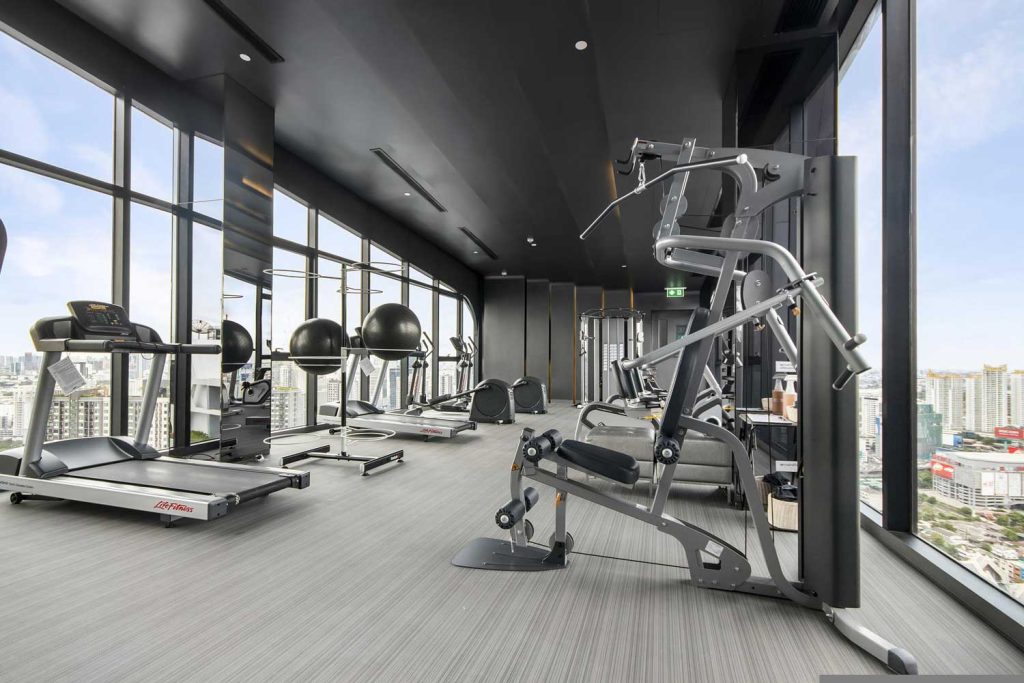
Disinfection is only necessary in case of a proven infection. For this purpose, disinfectants that only have a minor effect on the surfaces are suitable. In principle, a material compatibility test should be carried out at an inconspicuous area. Especially cleaners with quaternary ammonium compounds disinfect reliably with a broad spectrum of activity and short exposure times. This active ingredient is surface-active and impairs the function of the cell membranes of germs. Apesin multi for example uses this active ingredient and is suitable for use on both non-porous and porous surfaces, such as wood or leather, as there is no degreasing effect. Apesin multi is registered in the German VAH List of Disinfectants.
Hand cleaning, regular air exchange and careful maintenance cleaning pave the way for a safe and healthy workout. Proper maintenance cleaning is thus a clear success factor for gyms. In addition to economic processes, it also provides the necessary feel-good atmosphere to keep members coming back.
